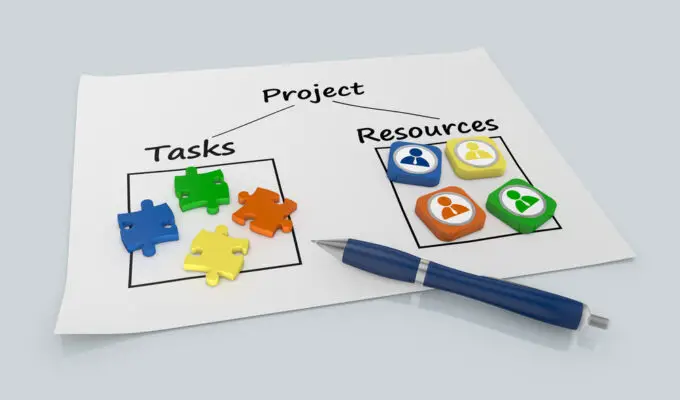Becoming a project manager in Australia generally follows a similar path to that in other countries. It involves a combination of education, experience, and sometimes certification. Here is a basic outline for becoming a project manager in Australia:
Certificate IV in Project Management Practice (BSB40920): This is a foundational course for people looking to work as part of a project team. The certificate is intended to develop project management skills and knowledge to contribute to the successful planning and execution of projects effectively.
Diploma of Project Management (BSB50820): After gaining some experience and foundational knowledge, consider advancing your skills with a Diploma of Project Management. This diploma provides the skills and knowledge necessary to manage projects in various contexts across several industry sectors.
Bachelor of Business (Management) or Master of Project Management: If you want to further your education, you might consider a bachelor’s or master’s degree. A Bachelor of Business (Management) will give you a broad understanding of business operations, while a Master of Project Management will provide more specific, advanced project management skills.
Project Management Professional certification: This is one of the most recognized and respected certifications in project management worldwide, offered by the Project Management Institute (PMI). It validates your competence as a project manager, leading and directing projects and teams.
National Accreditation with the Australian Institute of Project Management (AIPM): AIPM offers a variety of certifications, including the Certified Practicing Project Manager (CPPM) certification. Registration for national accreditation with AIPM.
Much like obtaining a Project Management Professional certification signals to employers that you’re prepared for project management roles and have met a recognized standard for knowledge and experience.
In addition to formal qualifications and certifications, developing soft skills such as communication, leadership, and problem-solving is also essential.
These skills are essential for effective project management and can be developed through experience, training, and self-reflection.
Building a strong network of contacts in the industry can also be beneficial for finding new opportunities and staying up to date with industry trends and best practices.
In today’s fast-paced business world, project management is essential for organizations to achieve their goals successfully. Project managers oversee the planning, execution, and completion of projects within specific timelines and budgets while ensuring that all stakeholders are satisfied.
Becoming a project manager in Australia requires foundational education, practical experience, and professional development. Becoming a project manager in Australia can be challenging but rewarding.
One must possess strong leadership skills, effective communication abilities, excellent problem-solving capabilities, and attention to detail.
This article outlines how you can become a project manager in Australia by gaining relevant experience in your field, completing certification courses or training programs, and pursuing further education or training options available to you.
Additionally, it will highlight some key skills necessary for success as a project manager and how networking and building your professional profile can pave the way toward achieving your career objectives.

Gain Experience in a Relevant Field
Acquiring experience in a related field is essential to becoming a project manager in Australia. To gain the necessary skills and competencies, it is recommended that individuals seek out internship opportunities or mentoring programs.
These initiatives can provide practical knowledge and hands-on training, allowing aspiring project managers to learn about project management methodologies, tools, and techniques.
Internship opportunities are an excellent way for individuals to gain relevant experience in their chosen industry while also developing their project management skills.
Interns are typically assigned to work on specific projects under the supervision of experienced professionals who can guide them through the various stages of the project lifecycle. This gives interns valuable exposure to real-world project management scenarios and helps them understand what it takes to deliver successful projects.
Mentoring programs are another effective way for aspiring project managers to gain experience in their chosen field. Mentors are experienced professionals who guide and support individuals seeking career development opportunities.
Through regular meetings, mentors can help mentees develop their skills, identify areas for improvement, and provide advice on how best to achieve their career goals.
Complete a Project Management Course or Certification
Completing a project management course or certification is essential to become a project manager in Australia. This subtopic delves into the key points for those pursuing this path.
Firstly, it outlines the importance of gaining foundational knowledge and skills for effective project management.
Secondly, it discusses the various accredited programs available both online and in-person.
Lastly, it provides an overview of the benefits and drawbacks of each option to help aspiring project managers make informed decisions about their education and training.
Foundational Knowledge and Skills
Foundational knowledge and skills required for a project manager in Australia encompass a broad range of competencies crucial to any project’s success. These competencies include leadership, communication, problem-solving, and risk management.
To become an effective project manager in Australia, it is important to have a deep understanding of the project management framework and current industry trends.
Leadership is one of the most important foundational skills for project managers. A good leader should be able to motivate team members and manage conflicts effectively.
Communication is another essential skill that enables project managers to convey information clearly and efficiently to stakeholders such as clients, team members, and suppliers.
Problem-solving skills help managers anticipate potential challenges and develop strategies to overcome them, while risk management helps mitigate any potential risks associated with the projects.
With an understanding of these foundational knowledge areas, aspiring project managers can be better equipped to lead projects in Australia’s dynamic business environment successfully.
Accredited Programs
Accredited programs in project management are essential for individuals who wish to pursue a career as a project manager in Australia. These programs provide students with the knowledge and skills to excel in project management.
Accreditation requirements vary depending on the institution providing the program. However, most institutions require applicants to have completed a bachelor’s degree or an equivalent qualification and possess relevant work experience.
The cost and duration of accredited programs in project management also vary depending on the institution offering them. Some institutions offer short courses that can be completed within a few weeks, while others offer full-time degree programs that can take up to four years.
These programs also vary significantly, with short courses costing only a few hundred dollars while full-time degree programs can cost tens of thousands.
Individuals must research before enrolling in any program, ensuring they choose one that best suits their needs and budget.
Online and In-Person Options
Online and in-person options offer individuals interested in pursuing a career in project management the flexibility to choose a learning environment that best suits their needs.
Online training programs provide a convenient way for students to access course materials from anywhere with an internet connection, making it possible for them to balance work and education.
Additionally, online courses are more affordable than in-person courses as they eliminate the cost of transportation and accommodation. However, one downside to online learning is the lack of face-to-face interaction with instructors and peers, which can hinder some learners’ grasp of complex concepts.
On the other hand, in-person training programs offer a more traditional approach where learners attend classes physically at designated locations. This option provides students with opportunities for networking and socializing with peers while receiving hands-on experience from experienced instructors who are readily available to answer questions.
Although this option may be less flexible than online learning, it often results in better outcomes because of the structured classroom environment that facilitates a deeper understanding of course material.
Nevertheless, there are cost and accessibility considerations involved, such as commuting expenses and time constraints due to fixed schedules, among others which could make it difficult for some individuals to pursue this option successfully.
Therefore, learners must weigh these factors carefully before deciding what works best for them while balancing work and education effectively by managing time wisely.
Pursue Further Education or Training
Further education and training can enhance the skills and knowledge of aspiring project managers.
Industry-specific training equips individuals with technical expertise and relevant industry insights to excel in their field.
Pursuing advanced degrees or professional development opportunities can also provide a broader perspective on project management principles, best practices, and emerging trends.
This enables individuals to develop strategic thinking skills essential for effective leadership in the ever-evolving business landscape.
Industry-Specific Training
Industry-specific training is crucial for individuals seeking to become successful project managers in Australia, as it equips them with the necessary skills and knowledge to navigate the unique challenges of their field.
Project management involves overseeing complex projects that vary by industry, which requires a deep understanding of specific industry practices, regulations, and standards. Industry-specific challenges can include managing budgets in construction projects or navigating regulatory requirements in healthcare projects.
Therefore, undertaking industry-specific training provides project managers with practical applications to use when working on real-world projects. Moreover, industry-specific training offers numerous benefits beyond just knowledge about a particular sector.
It helps project managers stay up-to-date with emerging trends and technologies in their respective industries and learn from experienced professionals who have worked on similar projects before.
Additionally, attending these courses allows budding project managers to network with other professionals in their field and discuss common issues they face while working on similar projects.
Ultimately, investing time and resources into acquiring industry-specific training makes aspiring project managers more competent and increases their chances of success in a highly competitive job market.
Advanced Degrees
To further advance their knowledge and skills in project management, individuals can pursue advanced degrees such as Master’s programs or Ph.D. options.
These programs offer a comprehensive curriculum covering various project management aspects, including leadership, risk management, budgeting, and communication.
Apart from providing theoretical knowledge on the subject matter, these advanced degree programs also equip students with practical tools and techniques for effective project management.
Another option for individuals looking to enhance their project management expertise is through employer-sponsored training or apprenticeships. Many companies offer training programs to build the skill sets necessary for successful project managers.
In addition to hands-on learning experiences, these training sessions provide opportunities to network with other professionals in the industry.
Apprenticeships are another great way to gain valuable experience working under the guidance of experienced mentors while simultaneously earning an income. Regardless of which path one chooses to take in advancing their career as a project manager, continuous education and development are essential to success in this field.
Professional Development Opportunities
Professional development opportunities play a crucial role in enhancing the knowledge and skills of project management professionals. As industries constantly evolve, project managers must stay current with the latest industry trends and developments.
Professional development opportunities such as attending conferences, seminars, and workshops can provide valuable insights into emerging technologies, new methodologies, and best practices.
These events allow project managers to gain knowledge from experts in their field and learn about real-world applications of project management principles.
Networking strategies also play an important role in professional development opportunities for project managers. Building a strong professional network can provide access to mentors who can offer guidance on career advancement or specific challenges faced on projects.
Networking events such as industry meetups, conferences, and online forums provide opportunities to connect with peers from different organizations with different perspectives or approaches to project management. These connections can lead to potential collaborations or job opportunities down the line.
Investing time in professional development through networking strategies will help project managers enhance their skill sets while staying relevant in today’s ever-changing business landscape.
Develop Key Skills for Success
Effective project managers possess key skills essential for success in their field. These skills include effective communication, time management, problem-solving, and leadership qualities.
Good project managers must communicate clearly with all stakeholders involved in the project. They should be able to articulate the project’s objectives and convey them to everyone on the team effectively.
Time management is another critical skill that successful project managers must possess. Project managers are responsible for keeping projects on track and within budget by creating schedules, setting deadlines, and monitoring progress regularly.
They need to have excellent organizational skills and an ability to prioritize tasks according to their importance and urgency.
Project managers should also be adept at problem-solving since they encounter unforeseen challenges during every stage of a project’s lifecycle.
They should think critically about problems as they arise, identify root causes, evaluate potential solutions, and weigh pros and cons before making decisions that could significantly impact project outcomes.
Moreover, good leaders can motivate team members towards achieving desired goals while maintaining morale throughout the process without micromanaging or imposing their ideas upon others. Ultimately these key skills play an essential role in becoming a successful Project Manager in Australia’s competitive market.
Network and Build Your Professional Profile
Developing key skills is crucial to be a successful project manager in Australia. However, that alone may not be enough to land you the job of your dreams. Building a strong professional network and online presence can greatly increase your chances of getting noticed by potential employers.
Attending networking events is an effective way to meet industry professionals and build connections that could lead to career opportunities. These events allow you to showcase your skills and learn from others in the field.
It is important to approach these events strategically, identify key individuals who can help you achieve your goals, and follow up with them after the event.
In addition to attending networking events, building an online presence through social media platforms such as LinkedIn can also help increase your visibility within the industry.
A well-crafted profile highlighting your skills and experience can attract recruiters searching for talent online. Engaging with others on these platforms by sharing industry-related content or participating in discussions can also demonstrate your knowledge and expertise in project management.

Frequently Asked Questions
What are the most common challenges faced by project managers in Australia?
Effective communication and risk management are crucial for project managers in Australia. Common challenges include managing stakeholder expectations, dealing with unexpected changes, and balancing competing priorities. Success requires a strategic approach that prioritizes planning and adaptability.
How can a project manager effectively manage a remote team in Australia?
Effective communication strategies and time zone management are crucial for project managers to manage remote teams in Australia successfully. Regular check-ins, clear expectations, and utilizing technology can help ensure team cohesion and productivity despite physical distance.
What are the typical salary ranges for project managers in Australia?
Salary comparisons for project managers in Australia vary based on industry sectors. According to Payscale, the average salary ranges from AUD 70k to AUD 140k per year, with those in the finance and IT industries earning higher salaries on average.
What are some emerging trends in project management in Australia?
Emerging trends in project management in Australia include adopting collaborative innovation and agile methodology. These approaches facilitate more flexible, iterative processes prioritizing customer needs and improving team communication, resulting in more successful project outcomes.
How can a project manager in Australia stay up-to-date with the latest industry developments and best practices?
Project managers in Australia can stay up-to-date with the latest industry developments and best practices by attending relevant industry events and participating in online courses. This enables them to remain strategically informed, organized, and detail-oriented.

Conclusion
To become a project manager in Australia, gaining relevant work experience is essential. Completing a project management course or certification can also increase your chances of finding employment in this field.
Pursuing further education or training, such as obtaining a master’s degree in project management, can set you apart from other candidates.
Developing key skills for success is crucial when aspiring to be a project manager. Effective communication, leadership, problem-solving, and time management are key skills.
Building your professional network and profile through attending industry events and joining professional associations can help you gain access to job opportunities.
Becoming a successful project manager in Australia requires dedication and hard work. Gaining relevant experience and qualifications is essential, but developing key skills like effective communication, leadership, and problem-solving will make you stand out from the competition.
Building your professional network by attending events and joining industry associations can also help advance your career prospects in this field.

Chris Ekai is a Risk Management expert with over 10 years of experience in the field. He has a Master’s(MSc) degree in Risk Management from University of Portsmouth and is a CPA and Finance professional. He currently works as a Content Manager at Risk Publishing, writing about Enterprise Risk Management, Business Continuity Management and Project Management.

